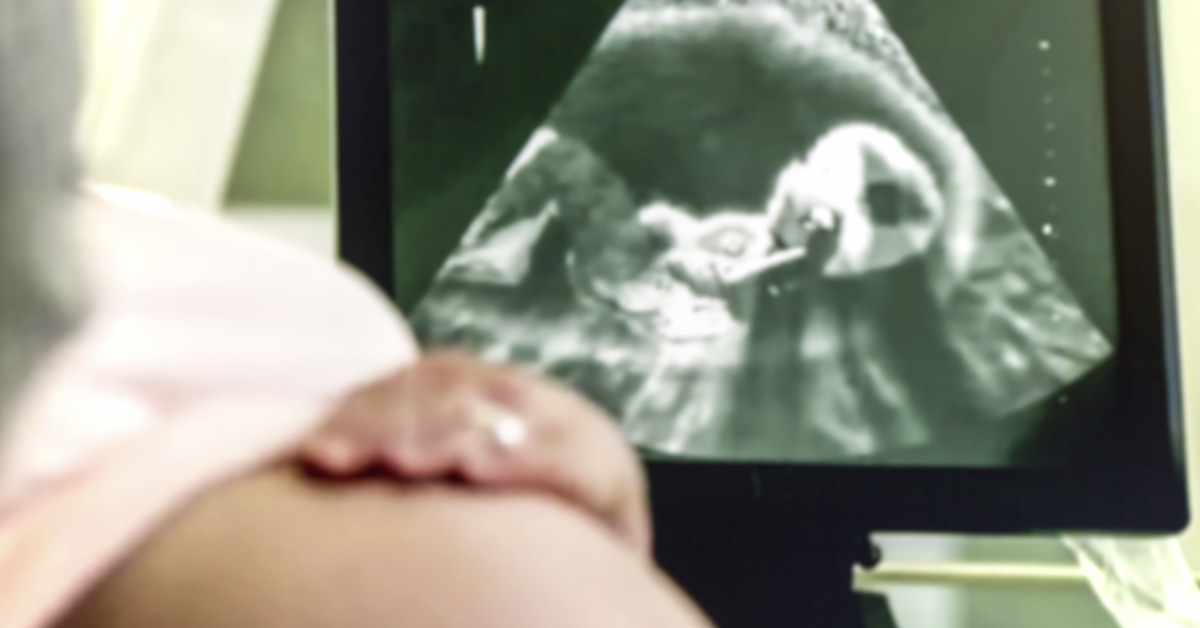Generally, parents have to wait until their baby can eat other foods besides their mother’s breast milk before they find out what their babies don’t like. Hilarious videos of babies being fed lemons for the first time have circled through our news feeds countless times. But, now, a study has been done on babies still in their wombs. Researchers have recorded the unborn child’s expressions as their mothers ate various foods. The results were hilarious.
Prenatal study
In England, a study was done on 100 pregnant women. The aim was to see the effects of various flavors of foods that the mothers ate had on the child in terms of “smell, taste, and chemesthesis”. They wanted to see if babies will be more inclined to enjoy certain flavors if they were exposed to them before birth.
According to the abstract for the study, this was the first time this study has been done on unborn children. Previously, a similar study was done on babies already born. the co-author of the study, Nadja Reissland, said in an interview: “We are the first ones who could show on an ultrasound scan the facial expressions in relation to the food which the mother has just consumed.”
Scowling babies
The study’s findings showed interesting results. It seems as if babies might be able to taste and smell food before they are born. The group of 100 women was divided into three groups. First, 35 of the women were given capsules containing the same amount of kale equating to 100 grams. Secondly, 34 of the women were given capsules with about one medium carrot’s worth. Lastly, the remaining 30 women were given no capsules.
Read: Toddler can’t Stop Laughing After Locking Himself in Car as 5 Firefighters Try to Rescue Him

After the women ate the capsules, they waited 20 minutes for the nutrients, and flavors, to sink in. Each of the participants was then prepped for an ultrasound. The images of the fetuses that came through varied. The mothers who ate kale showed babies with scowls across their faces. Contrariwise, the babies of the mothers who ate carrots seemed to have big smiles.

Reissland said the scowling expressions “might be just the muscle movements which are reacting to a bitter flavor.” Although, she did mention that it is not unheard of for a baby to pull a funny face from time to time. “If you look at it from 24 to 36 weeks gestation, their expressions become more and more complex,” she said.
Read: 2-Year-Old Orders 31 Cheeseburgers After Mom Leaves Phone Unlocked
Methods
The researchers put the food into capsules as a way to preserve the flavor while the mothers digested them. That way, the food would not get as diluted as it passes through their bodies. It had other benefits too. Researchers were worried that if the mothers themselves did not like kale or carrots, it would affect the baby’s opinion from inside the womb.
To avoid any bias from the mother and baby, the capsules would hide the flavor from the mother. Only the baby receives the flavor. Reisslnd said: “The bitter flavor gets into the small intestines and then into the mother’s blood. And then into the placenta and the amniotic fluid. This process seems to take around 20 minutes, and what you then get is a specific reaction of the fetuses to that flavor.”
Intentions
Reissland and her team believe that a healthy diet is good for the health of a child’s whole life. Extending into their adult life, not just in the womb. “Diet during pregnancy is really important and influential on the health of not just the developing fetus, but the future for that child. Mothers who have healthy diets while they are pregnant may also find that their babies are less fussy eaters,” Reissland said. “If we can get [children] to like green vegetables and to perhaps not like sweets that much, it might help with regard to their weight gain and their weight balance.”
Keep Reading: 95-Year-Old Grandma And Her Grandson Prove Fun Doesn’t Have An Age Limit With Hilarious Costumes (22 New Pics)
Sources
- “Flavor Sensing in Utero and Emerging Discriminative Behaviors in the Human Fetus.” Sage Journal. Beyza Ustun, et al. September 21, 2022.
- “Fetuses in the womb smiled after their mothers ate carrots but scowled over kale, research finds.” NBC News. Aria Bendex. September 22, 2022.
- “The taste of kale made unborn babies grimace, but they smiled at carrots, a new imaging study found. Insider. Andrea Mihelson. September 23, 2022.

